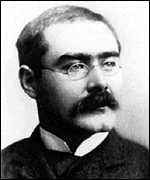OP
OP
talwan
Guest
alwar, can i request your opinion on the following... please
New Upanishads
There is no fixed list of the Upanishads as newer ones have continued to be composed.[31] On many occasions, when older Upanishads have not suited the founders of new sects, they have composed new ones of their own.[32] 1908 marked the discovery of four new Upanishads, named Bashkala, Chhagaleya, Arsheya and Saunaka, by Dr. Friedrich Schrader,[33] who attributed them to the first prose period of the Upanishads.[34] The text of three, the Chhagaleya, Arsheya and Saunaka, was reportedly corrupt and neglected but possibly re-constructable with the help of their Perso-Latin translations. Texts called "Upanishads" continued to appear up to the end of British rule in 1947. The Akbar Upanishad and Allah Upanishad are examples,[8] having been written in the 17th century in praise of Islamic ideas at the insistence of Dara Shikoh.[35]
The main Shakta Upanishads mostly discuss doctrinal and interpretative differences between the two principal sects of a major Tantric form of Shaktism called Shri Vidya upasana. The many extant lists of authentic Shakta Upaniṣads vary, reflecting the sect of their compilers, so that they yield no evidence of their "location" in Tantric tradition, impeding correct interpretation. The Tantra content of these texts also weaken its identity as an Upaniṣad for non-Tantrikas and therefore, its status as shruti and thus its authority.[36]
The text composed by Vaishnava saint Namalvar (Satkopa) is also known as the Dravidopanisatsangati.
Upanishads - Wikipedia, the free encyclopedia
Kunjuppu Sir,
My reply for your querry is as under,
We All know Ramayana was Origionally written by Rishi Valmiki,Subsequently
Different people wrote Ramayana in various Languages.All were based on the Valmiki Verse but with different twists.Each Ramayana is praised for various reasons.Incidently Our EVR(thanthai periar)Wrote 'Keemayanam' totally Ulta Ramayanam.According to that Ravana was Hero.The Keemayana was also had some followers.My contention is people at Different times write differently on a subject.We cannot question why it is written.Our Judgement (with Interaction with experts in the field)should decide which one we choose for our purpose.
withregards,
T.Alwan





